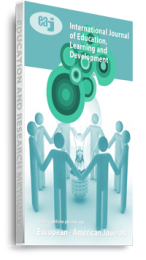This study examined the influence of teachers’ variables for the utilization of fieldtrips for Environmental and Social Studies instruction among Colleges of Education in the Northern regions of Ghana. Three research questions were formulated to achieve the research objective. As such, the study used a descriptive research design, administered questionnaires and solicited opinions through interviews. Twenty (20) Environmental and Social Studies tutors were sampled from the seven (7) Colleges of Education in the Northern regions of Ghana. The result of the findings indicated that tutors in the study area do use fieldtrips in the teaching of Environmental and Social Studies. However, there are a number of challenges militating against their frequent use of fieldtrips in the teaching and learning process such as the large nature of the classes they handle, insufficient time for the organization of fieldtrip, financial constraint, and lack of support from college administration for fieldtrips, limited available transportation, and the risk associated with fieldtrips. Based on the findings, recommendations were made that tutors should be orientated on the use of fieldtrips through attendance at seminars, workshops and conferences and that government through Teacher Education Division of Ghana Education Service should support Environmental and Social Studies tutors in Colleges of Education financially for improved efficiency on their use of fieldtrips to promote effective teaching and learning. Lecture time table should be flexible to allow tutors to organize fieldtrips in their respective Colleges to bring about effective teaching and learning.
Keywords: Fieldtrip. Environmental and Social Studies, Learning of Environmental and Social Studies, Selection of Fieldtrips Locations, Teaching Strategies, Teaching of Environmental and Social Studies, Utilization of Fieldtrips

